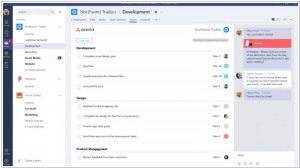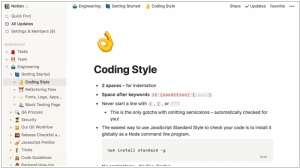Asana vs Notion
August 23, 2023 | Author: Adam Levine
Asana and Notion are popular productivity and project management tools, each with its own unique features and strengths. Asana is primarily focused on project management, allowing teams to create projects, assign tasks, set deadlines, and track progress. It offers robust collaboration features, such as commenting, file attachments, and integrations with other tools. Asana excels in managing complex workflows and team coordination. On the other hand, Notion is a versatile all-in-one workspace that combines task management, note-taking, and knowledge sharing. Notion allows users to create customizable databases, wikis, and documents, making it suitable for personal organization and collaborative work. It offers a flexible and intuitive interface, allowing users to structure and organize information according to their needs.
See also: Top 10 Wiki software
See also: Top 10 Wiki software
Asana vs Notion in our news:
2024. Notion acquires privacy-focused productivity platform Skiff
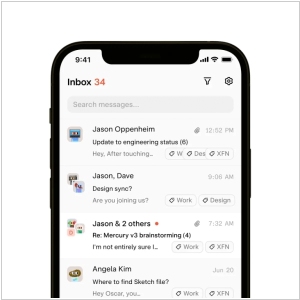
Notion has acquired Skiff, a platform established in 2020 by Andrew Milich and Jason Ginsberg, which specializes in providing end-to-end encrypted file storage, document management, calendar functionalities, and email services. Skiff initially garnered $14.2 million in funding and positioned itself as a secure alternative to Google Docs, expanding its offerings to include productivity solutions like calendars and emails. Skiff announced its integration with Notion on its website, along with the decision to discontinue its services after a transition period of six months. The company assured users that their Skiff accounts would not be automatically converted into Notion accounts but emphasized the ease of exporting or migrating data to other platforms.
2024. Notion launches a stand-alone calendar app
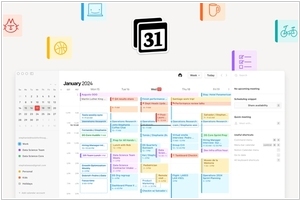
Notion, a widely used platform for note-taking and project management, has introduced a dedicated calendar service, drawing from its acquisition of the well-designed Cron calendar app in 2022. Positioned as a free next-generation iteration of Cron, Notion Calendar incorporates a built-in scheduling tool reminiscent of Calendly and offers optional deep integration with Notion. Accessible on Mac, Windows, iOS, and the web (with an Android app in development), the calendar seamlessly merges work and personal calendars, providing users with a unified view for effective day management. Although Notion has previously featured a calendar view within workspaces, it now integrates with external calendars, starting with Google Calendar. Emphasizing its standalone nature, users can opt for Notion Calendar as a standalone smart calendaring service, but for Notion users integrating it into their workflow, there's the added benefit of attaching Notion docs to calendar events, fostering better preparation and alignment within teams.
2023. Asana launches new work intelligence tools with AI on the way
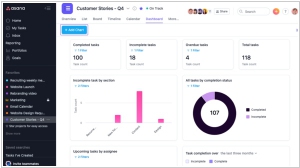
Asana has announced a new set of dashboards to give managers the data they need to make sure projects are staying on budget and meeting goals. This involves providing a single view of strategic initiatives, team capacity and budgets. It builds on the graph model that underlies the entire Asana platform, but the company is working to bring artificial intelligence to the process to make it even smarter. The next step will be using AI to generate the portfolios of the things that you care about instantaneously. So having them become smarter and smarter, but the fact that they can be at any level across an entire organization, that is part of this new launch
2021. Notion acquires India’s Automate.io in push to accelerate product expansion
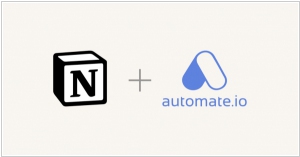
Workplace productivity startup Notion has recently acquired Automate.io, an Indian startup renowned for developing connectivity and integrations with more than 200 services. This acquisition serves as a strategic move for Notion to expedite its product expansion and enhance its appeal to the growing number of individuals and businesses transitioning to digital collaborative tools. With the addition of Automate.io, Notion gains valuable insights into the 200 integrations the Indian startup has built. This knowledge will enable Notion to empower users and enterprises by incorporating their workflows seamlessly into the Notion platform.
2020. Online workspace startup Notion raises $50M
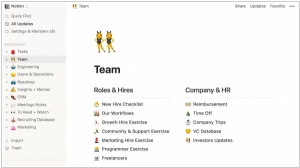
Online workspace startup Notion has secured $50 million in fresh funding, valuing the company at $2 billion. Established in 2016, Notion offers a comprehensive workspace solution encompassing note-taking, task management, wikis, and databases. Its unique proposition lies in consolidating various work applications into a single platform, making it ideal for efficient task and project management. Notably, amidst the global COVID-19 pandemic, Notion's remote work support played a significant role in attracting investors. The company experienced a surge in new customer sign-ups, setting new records, as remote working became the norm due to the pandemic. The exponential growth of remote work in 2020, spurred by COVID-19, has significantly bolstered the user base of remote work tool providers across different industries.
2018. Work management software provider Asana gets $50M
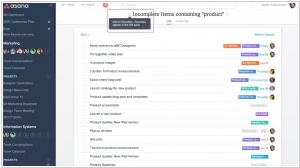
Asana, a platform utilized by teams and individuals to plan and monitor work projects, has secured an additional $50 million in funding, resulting in a valuation of $1.5 billion. The funding will be allocated towards international expansion and product enhancement. Asana has been actively focusing on global growth, with half of its new sales already originating from outside the United States. The company aims to further extend its product offerings while approaching profitability. As part of its expansion strategy, Asana plans to establish an AWS-based data center in Frankfurt within the first half of the upcoming year. Additionally, it intends to establish a stronger presence in the Asia-Pacific region, with new offices in Sydney and Tokyo, along with ongoing recruitment efforts in both markets. Asana's customer base spans across 195 countries and supports six languages. The company's decision to concentrate on these two regions stems from the significant traction it has observed in those areas.
2018. Asana launched $19.99 Business tier to help managers handle multiple projects
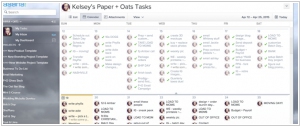
Project management service Asana is introducing a new tier called Asana Business, tailored for enterprises that handle multiple projects. Priced at $19.95 per user per month, this offering is specifically designed to support teams with managers or executives overseeing numerous projects simultaneously, which can sometimes reach thousands within a single organization. Asana Business provides additional features to aid designated individuals in effectively managing and prioritizing their workload. This emphasis on executives and managers aligns with Asana's broader vision of its role within the spectrum of productivity tools used by businesses. Alongside efficient storage solutions like Dropbox or Box and communication platforms such as Slack, Workplace, and Teams, Asana aims to establish its place as a comprehensive tool for enhancing organizational productivity.
2018. Asana adds AI-powered interactive project maps
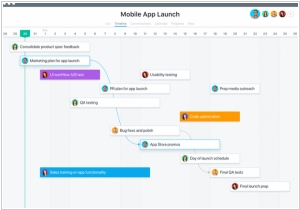
Workflow management platform Asana has introduced a new feature called Timeline, offering composite, visual, and interactive maps that illustrate the progress of various projects assigned to team members. This feature provides teams with a broader perspective on their collective workload and visualizes how projects interconnect in a timeline format. Timeline proves valuable in scenarios such as product launches, marketing campaigns, and event planning. Importantly, it does not require duplicating work or using separate software; instead, each project automatically becomes a distinct segment on the team's Timeline. It's worth noting that Timeline is exclusively available to paying users, while free users among Asana's extensive user base will need to upgrade to the premium tier to access this feature.
2018. Asana raised another $75M
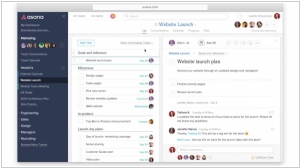
Asana, the renowned productivity and collaboration service, has secured a significant $75 million investment in its Series D funding round. In a blog post, Asana highlighted that 45 percent of its 30,000 paying customers are located outside of the United States. Among its notable clientele are prominent names like Tesco, Sky, Danone, Chanel, and Spotify. With this global reach in mind, Asana has announced its plans to introduce Spanish, Portuguese, and Japanese versions of its service, following the recent rollout of support for French and German. Including this latest funding, Asana has now successfully raised a total of $168 million from investors. Business Insider reported that the startup's current valuation stands at an impressive $900 million.
2016. Asana added Custom fields
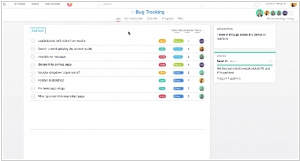
Task management app Asana is introducing a new feature called custom fields, which allows users to customize the information management system within Asana to accommodate various structured data points. With custom fields, companies can tailor Asana to their specific needs. For instance, a company conducting a recruitment drive can create a form within Asana to track additional details about candidates. Marketing teams can delve into larger plans and monitor specific campaigns, while engineering teams can utilize custom fields for bug tracking. Design teams can leverage this feature to provide more comprehensive insights and updates on major projects. Furthermore, Asana will integrate custom fields into its API, enabling users to explore new applications and utilize Asana as a customer-facing tool to efficiently gather and structure information in real time.

